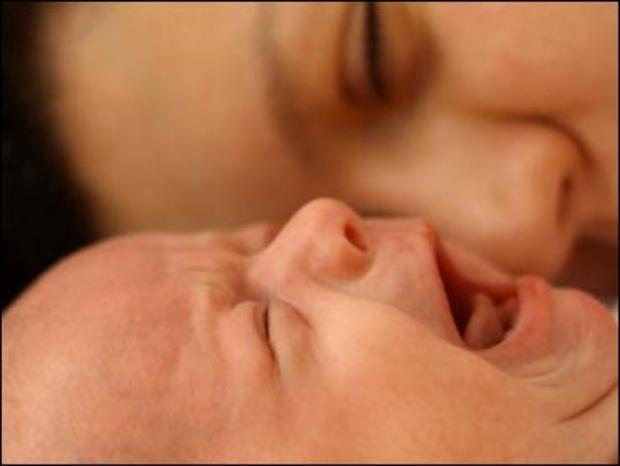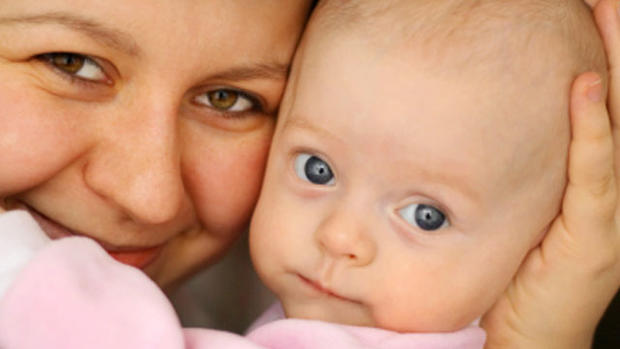Moms with migraines twice as likely to have baby with colic
(CBS) When babies with colic cry - sometimes for weeks at a time - Mom and Dad might get headaches. But according to a new study, a mother's headache may be causing her baby's colic in the first place.
PICTURES: Top 15 places to be a mom
The study found mothers who suffer migraine headaches are more than twice as likely to have babies with colic, compared with mothers who don't have a migraine history. The study authors say their research suggests colic might just be an early sign that the baby will grow up to have migraines.
Previous research suggests gastrointestinal problems - like from something the baby ate - might cause colic, the condition marked by excessive crying in an unhealthy child. But researchers have been trying to prove that link for more than 50 years, without much luck.
"We've known about colic for a really long time," study author Dr. Amy Gelfand, a child neurologist with the headache center at the University of California, San Francisco, said in a university written statement. "But despite this fact, no one really knows why these babies are crying."
For Gelfand's study, UCSF researchers surveyed 154 new moms who brought their babies in for a two-month checkup - the age at which colicky crying typically peaks. Moms were surveyed about how much their babies cry, as well as about their own migraine history. The researchers took the survey results and determined how many babies actually met the clinical definition of colic, and found 29 percent of infants whose moms had migraines had colic, compared with 11 percent of babies whose moms were migraine-free. That means mom's migraines contributed to a two-and-a-half times greater risk the baby would have colic.
The findings will be presented at a neurology conference in New Orleans this April.
The researchers also say the study suggests colic might be an early indicator of a child's future migraine risk, and that treating colic like one would treat a migraine might help.
"Turning down loud music, going to a quiet room and decreasing stimulation might help," Gelfand told HealthDay. She also suggests moms and dads keep a "crying diary," so they can track when colic flare-ups occur, and make note of what helps.
Finding new clues about colic and how to reduce crying is especially important, the researchers said since excessive crying is the most common trigger for shaken baby syndrome, which can cause death, brain damage and severe disability.
But not all excessive crying might be from colic. According to WebMD, parents should call a doctor immediately if the baby cries in a peculiar way for an unusually long time, or has not been diagnosed with colic but cries excessively and has symptoms of vomiting, diarrhea, fever, or blood or mucus in the stool.
WebMD has more on colic.

